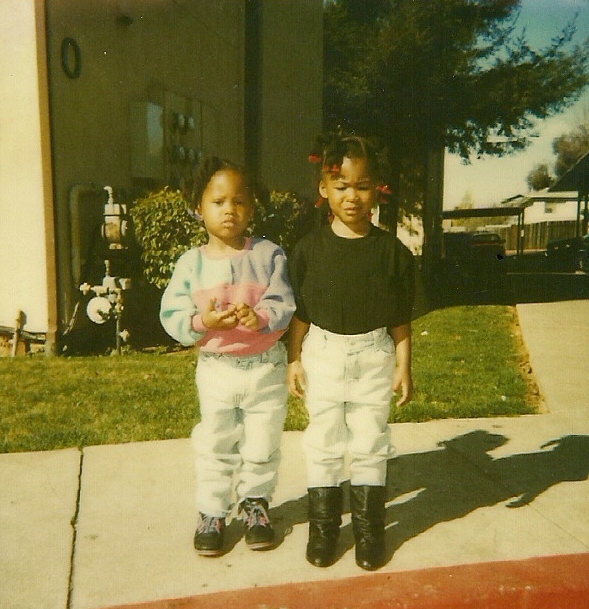Why I Specialize in Helping People Manage Oppression: A Therapist's Perspective
Therapy isn’t just about “fixing” your thoughts or breathing through panic attacks. It's about digging deep. It's about unlearning the harmful stuff the world taught us to believe about ourselves and others. That’s why I specialize in helping people manage oppression. Because the things making you anxious, angry, depressed, or numb might not just be inside of you. A lot of it is systemic. It's baked into the world around you and often invisible until someone names it.
We Are All Conditioned Even When We Think We're Not
From birth, we're conditioned by systems. Media, marketing, school, law enforcement, and even our jobs train us to play specific roles in society. And unless you’ve taken a conscious step back to examine this, you’re probably playing those roles automatically. It’s not your fault. That’s how it was designed.
Take the 40 hour workweek. Why is that our default? Why do most jobs operate on a 9 to 5 schedule? These structures weren’t created with mental health in mind. They were designed to maximize productivity during the Industrial Revolution. And now? We're still stuck in that mold, ignoring the fact that this schedule doesn’t align with how many of us actually function. You’re not lazy for struggling to stay awake at 8 in the morning or crashing by 3 in the afternoon. You're human. But the system doesn’t care about that part.
Oppression Isn’t Just Out There It Lives In Our Minds and Bodies
Oppression doesn’t only show up in headlines or history books. It lives in our bodies, our nervous systems, and our everyday choices. That’s why it impacts mental health so deeply. Oppression can look like:
Feeling unsafe in your own skin because of racism
Struggling with internalized fatphobia or ableism
Hiding who you are to survive at work or in your community
Living in survival mode because poverty leaves no room to rest
We are hit with propaganda constantly. It's in the commercials that push beauty products to make us more “acceptable,” in the news that criminalizes whole communities, and in laws that protect wealth over people. This messaging teaches us who deserves love, safety, and success. And who doesn't. When we internalize these messages, they show up as anxiety, shame, low self-worth, or self-destructive patterns.
Understanding the Layers of Intersectionality
Oppression doesn’t impact everyone the same way. Many people carry more than one marginalized identity and the pressure stacks. This is where the idea of intersectionality comes in. It helps us understand how deeply these overlapping systems can affect mental health.
You might be Black and queer. Or disabled and low income. Or an immigrant and a woman. Each identity adds its own weight. And the research is clear. Studies using the Trauma Symptoms of Discrimination Scale have shown that people with multiple marginalized identities report higher levels of trauma, anxiety, depression, and even PTSD.
In one national study of over 900 people, the scale predicted mental health symptoms tied to racism, homophobia, poverty, and more. Other research shows how constant discrimination raises cortisol levels, affects brain function, and harms physical health too. The takeaway? Oppression is a mental and physical health crisis. And it needs to be treated as such.
Why This Is My Work
I didn’t become a therapist just to help people cope. I came into this work because I kept seeing people being misdiagnosed, misunderstood, or dismissed. No one was looking at the full picture of their lives.
I am here to name what most people are afraid to talk about. To help you see that your pain is real. That your environment, history, community, and the systems around you all shape your mental health.
My job is to help you unpack:
The harmful beliefs you’ve been taught about yourself
The institutions that put up barriers in your life
The daily experiences that reinforce inequality
Healing from this kind of trauma isn’t about getting over it. It’s about getting free. Free to be yourself. Free to rest. Free to live outside of survival mode. Free to find joy.
So Now What?
If therapy has ever felt like it didn’t “get” you
If you’ve been told to just breathe through something that actually needed a protest
If you’re wondering why you still feel tired after all the healing work you’ve done
You are not broken. You are reacting to something real.
Let’s stop pretending that systemic issues can be solved with good vibes and deep breathing alone. You deserve care that sees the full picture of who you are and what you’ve been through.
This is why I do what I do. To affirm your truth. To help you unlearn the lies. To walk with you as you reclaim your power. Because healing isn’t just possible. It’s revolutionary.
Ready to go deeper? I’m here. Let’s do the work together.
Written by a therapist who sees you for real.






Comments
Post a Comment